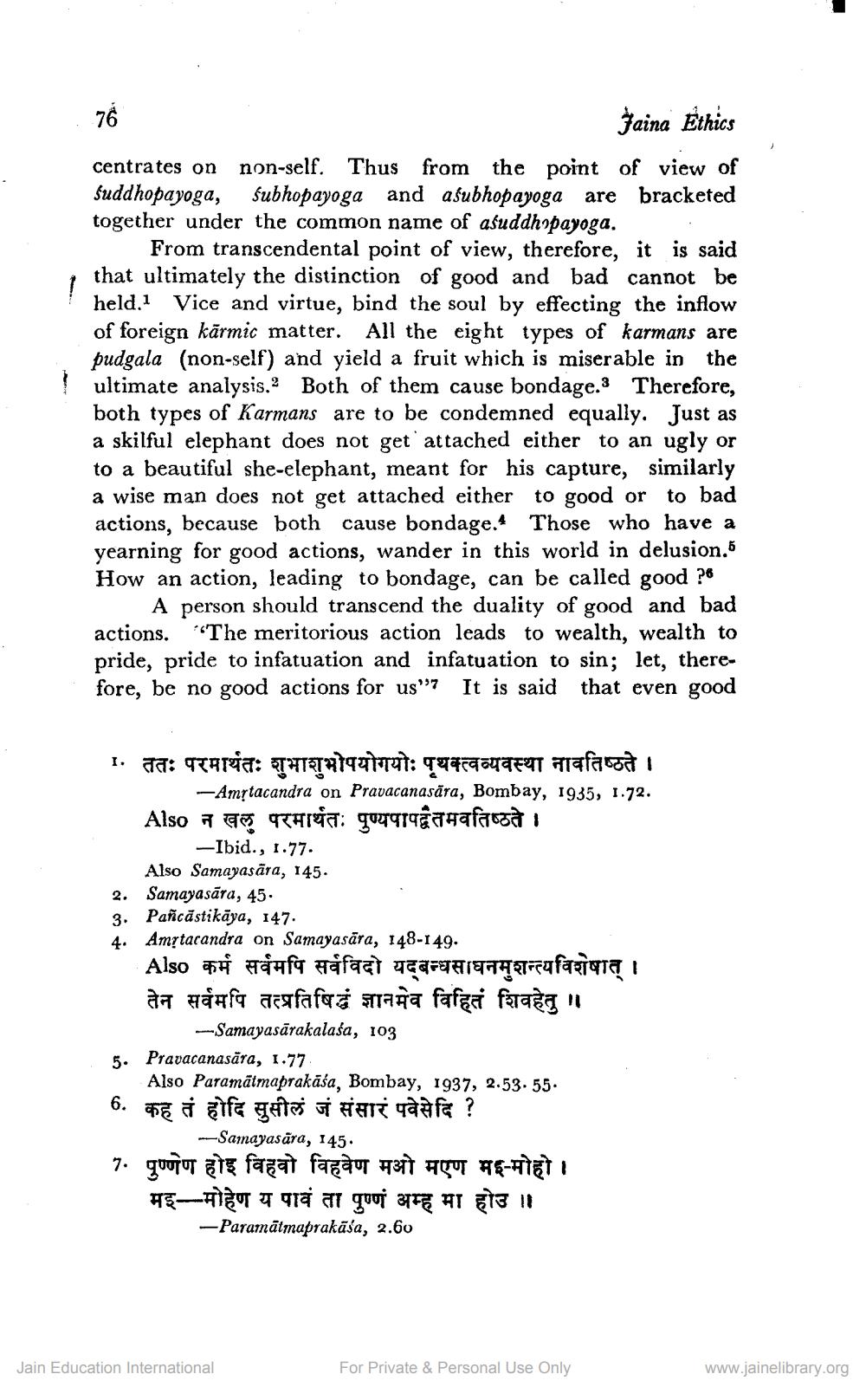________________
76
Jaina Ethics
centrates on non-self. Thus from the point of view of Suddhopayoga, Subhopayoga and asubhopayoga are bracketed together under the common name of aŝuddh payoga.
?
From transcendental point of view, therefore, it is said that ultimately the distinction of good and bad cannot be held.1 Vice and virtue, bind the soul by effecting the inflow of foreign karmic matter. All the eight types of karmans are pudgala (non-self) and yield a fruit which is miserable in the ultimate analysis. Both of them cause bondage. Therefore, both types of Karmans are to be condemned equally. Just as a skilful elephant does not get attached either to an ugly or to a beautiful she-elephant, meant for his capture, similarly a wise man does not get attached either to good or to bad actions, because both cause bondage. Those who have a yearning for good actions, wander in this world in delusion.5 How an action, leading to bondage, can be called good ?
A person should transcend the duality of good and bad actions. "The meritorious action leads to wealth, wealth to pride, pride to infatuation and infatuation to sin; let, therefore, be no good actions for us" It is said that even good
1. ततः परमार्थतः शुभाशुभोपयोगयोः पृथक्त्वव्यवस्था नावतिष्ठते । -Amṛtacandra on Pravacanasara, Bombay, 1935, 1.72. Also न खलु परमार्थतः पुण्यपापद्वैतमवतिष्ठते ।
-Ibid., 1.77.
Also Samayasara, 145.
2. Samayasara, 45.
3. Pañcastikaya, 147.
4. Amṛtacandra on Samayasara, 148-149.
Also कर्म सर्वमपि सर्वविदो यद्बन्धसाघनमुशन्त्य विशेषात् । तेन सर्वमपि तत्प्रतिषिद्धं ज्ञानमेव विहितं शिवहेतु ॥
-Samayasarakalasa, 103
5. Pravacanasära, 1.77
Also Paramätmaprakāśa, Bombay, 1937, 2.53. 55. कह तं होदि सुसीलं जं संसारं पवेसेदि ?
6.
-Samayasara, 145.
7. पुणेण होइ विहवो विहवेण मओ मएण मह-मोहो ।
मइ — मोहेण य पावं ता पुण्णं अम्ह मा होउ ॥
-Paramātmaprakāśa, 2.60
Jain Education International
For Private & Personal Use Only
www.jainelibrary.org




